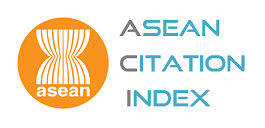Informed Consent in Building Big Data in Healthcare:
The Essential Role of Hubs in Curating and Disseminating Knowledge
Abstract
Abstract
This article discusses a practical way to secure informed consent from contributors of big data in healthcare. The prevailing method of obtaining patients’ informed consent to their medical treatment is “process-based informed consent.” That is, a patient’s informed consent is built through continuous communication between the patient and their medical team, rather than a physician’s explanation and a patient’s written consent isolated from their continuous communication. In contrast, the contributors of data and the builders or users of big data have little opportunity for continuous communication between them. However, this hardly justifies the builders and users of big data in healthcare to undermine the informed consent of contributors. The authors attempted to find a practical way in which we can substantialize informed consent in the course of building big data in healthcare. In order to discuss this matter, the authors employed simplified social network models, as well as conducted intensive interviews with a group of practicing lawyers. By these means, the authors found that continuous diffusion of knowledge through hubs, which curate and disseminate newly developed knowledge, in information networks to citizens effectively assists contributors, builders and users of big data to give and gain substantial informed consent.
Keywords: big data, healthcare, informed consent

Indexed in


Search